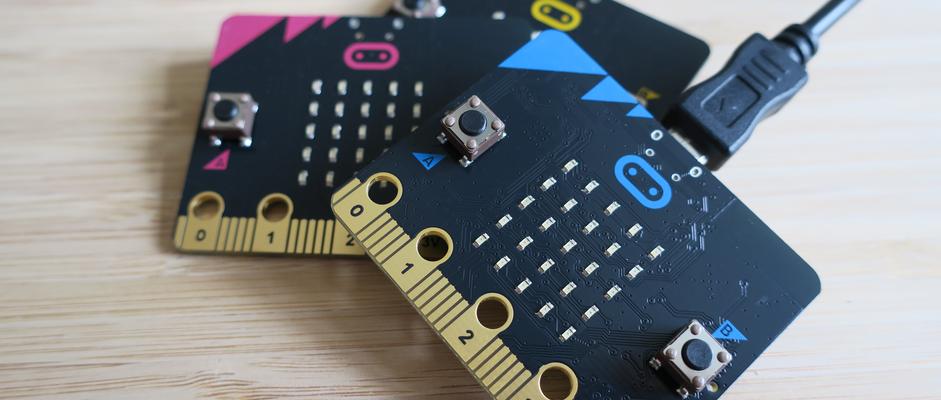The BBC micro:bit is a pocket sized computer that you can code/programme, it's designed by the BBC and Microbit Org for young people in education with the aim of enhance their digital creativity and learning. Due to the simplicity of block programming code editors, the range of features the board has, and plug-and-play electronics the micro:bit board is perfect for beginners of all ages.
The board has a range of features designed specifiaclly to make it as user friendly and easy to use for learning as possible. The connector on the bottom allows for croccodile clips or a breakout board such as the Cool Components Breakout:bit to be used to easily connect to external add-on boards.
As well as connections to all the pins the board has a 5 x 5 red LED matrix which can be used to display text or create shapes, there is two programmable buttons that can be used as inputs or outputs.On the board is also an accelerometer and compass, which means you can create some complex project with no extra components.

It's compatible with a range of progamming languages at all skill levels. For younger makers and beginners there's block based languages such as Scratch and Makecode. For older or more advanced makers there are more complex languages such as Python, Javascript and Arduino.
Thanks to the edge connector and a great community online there's an extensive range of different projects and add-on boards available. If you're looking to use it for making a robot, creating a smartwatch, or looking to use it to bring your digital ideas to life there's something for everyone.
If you're looking to get started you can find some popular BBC micro:bit blog posts below:


